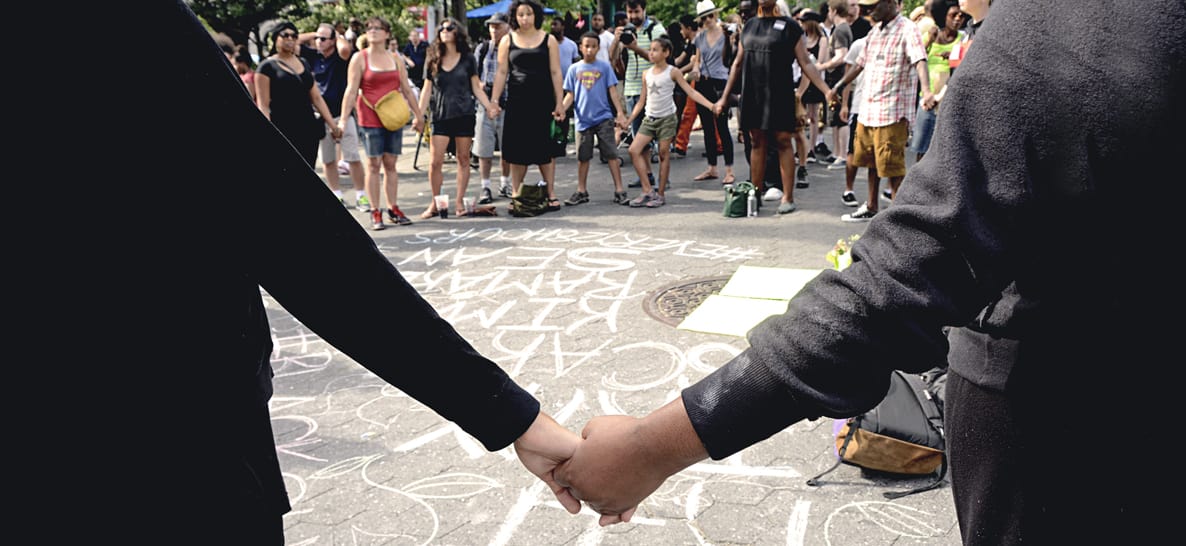
A definitive mark of Christians, according to Jesus, is that we’re called to be peacemakers.
By just about any measure, we’re facing a time of racial unrest in the United States. In this, we Christians are uniquely purposed in mending this divide that has plagued our nation since its inception.
In the past, I’ve had coworkers ask me questions about the Bible or about my motivations for studying theology. And what might be surprising is that—to the best of my knowledge—all of the conversations were extremely cordial and we ended better friends than we began.
But some of these conversations brought up my most consistent frustration when it comes to talking with others about my faith: Some people object to the truth claim of Christianity because of the behavior of some “Christians” they know. Simply put, they can’t see truth or beauty in the claims of a group of people they consider more morally defunct than their non-Christian friends.
It’s this same frustration I find myself dealing with today as I follow reactions to the racial unrest in America.
By far, the most popular social media argument I’ve seen, whether it’s against Black Lives Mater or against those who “support the police,” is an argument against the movement based on the the unethical actions of a small minority of its proponents. Black Lives Matter is an important, non-centralized movement that’s trying to raise awareness about racial injustice and spark social real reforms to end it. Judging it by its most extreme fringes or a few individuals isn’t fair or accurate.
For example, I’ve seen a number of white people decry Black Lives Matter because of videos of a small fraction of protestors whose actions they deem inappropriate. Similarly, there may be some protesters decry people who support police because they’ve seen videos of white people who are actually racists behaving unethically.
Regardless of your stance on these issues, it’s easy to become angry when seeing either type of these extremes. To say it another way, the ugliness of sin is clear when we see other people partaking in it. At the same time, depending on your stance on these issues, it’s easy to make excuses for some while generalizing others.
For example, if an individual would broadly fall into the group that “supports the police,” it would be very easy for them to genuinely be angry at the racist remarks they see on video, but quickly dismiss the speaker as an “outlier” of their group. They would understand that a majority do not feel that way.
At the same time, it would be far easier for them to see a video of a protester behaving inappropriately and begin to generalize: to draw a conclusion that not only are they affiliated with Black Lives Matter as an organization, but also that the organization is intentionally and formally propagating this type of behavior.
It’s at times like these that Christians need to remember their roots. As people who share a message that has been rejected because of the actions of so-called Christians, we need to make distinctions between the claims of a movement and the actions of its so-called followers. We understand that a morally repugnant action performed by a so called follower does not negate the truth claims of a movement as a whole.
Christians should be uniquely able to see videos that make them emotionally upset, and still make rational (yet compassionate) judgment. We should be able to fight for the principles of a movement because we understand that some who advocate for the movement are not actually part of the movement.
We should do so precisely because we understand that any movement, whether it’s Christianity, Black Lives Matter or a political, looks like a single unit from the outside. Once you take a closer look at any of these factions, you realize they are extremely diverse. For example, “Christianity” as some would define it includes the Catholic Church, Joel Osteen’s church, Jehovah’s Witnesses, the church you attend and Westboro Baptist.
So many people are looking for a comprehensive list of guiding principles for those engaging in these types of debates. What I can offer are the goals for which I, personally, am striving.
They can be summarized in this: “I expect the same out of myself as I would of someone who I call family in Christ.” I hope I’ll listen to the leaders of a movement themselves rather than making up my mind before I hear them speak.
I hope to seek out input from “the other side,” as I work through difficult issues.
I hope to engage in all conversations with charity and compassion.
I hope to engage in potentially divisive conversations with friendship as the number one goal. (We’re trying to win people, not arguments.)
I hope to engage in complex conversations with the goal of understanding someone else’s point of view rather than simply propagating my own. Mortimer Alder says it well, “You must be able to say, with reasonable certainty, ‘I understand,’ before you can say any one of the following things: ‘I agree,’ or ‘I disagree,’ or ‘I suspend judgment.’”






















